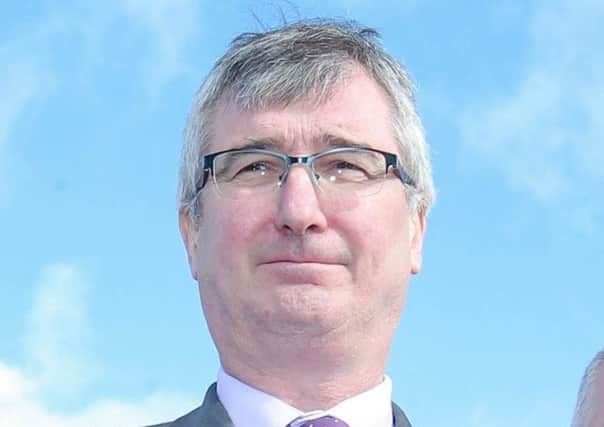Unionists show little interest in voting for Irish president


The DUP, UUP and TUV were all reacting to the news that the Republic of Ireland may opt to extend voting rights to Irish citizens who live outside the Republic of Ireland.
The Ulster Unionists said that whilst it was “not a matter” for the party, it is opposed to the Province playing host to Irish polling stations, or allowing Irish party political broadcasts.
Advertisement
Hide AdAdvertisement
Hide AdThe plan to extend voting rights, announced by taoiseach Enda Kenny on Sunday, would only apply to presidential elections, not other kinds.
After the announcement, UUP South Antrim MLA Steve Aiken posted a message online, which read: “Excellent idea – let’s all get Irish passports and we can ensure there’ll never be SF or anti-Union President of Ireland!”
Under the Good Friday Agreement of 1998, anyone born in Northern Ireland is automatically eligible for Irish citizenship.
The DUP was asked what it thought of the taosieach’s proposal, and whether it would encourage unionists to sign up to vote.
Advertisement
Hide AdAdvertisement
Hide AdIt said: “Voting arrangements for the Irish presidential election are obviously a matter for the Republic of Ireland and a decision to grant voting rights to Irish citizens across the world, will obviously include those within the UK.
“We would not envisage many unionists signing up for Irish citizenship to vote in Irish presidential elections and we would not be encouraging people to follow this path.
“As a unionist party we want to have a positive relationship with the Republic of Ireland but our focus is on Northern Ireland’s place within the United Kingdom and ensuring the benefits of being part of the UK are promoted to everyone living here.”
The UUP was also asked the same questions.
It issued a statement in the name of Tom Elliott, MP for Fermanagh & South Tyrone which did not directly address the question of whether it would back the notion of unionists voting in such an election.
Advertisement
Hide AdAdvertisement
Hide AdIt said: “If the Irish government wants to give voting rights to Irish passport holders living outside the Republic of Ireland, that’s entirely up to them.
“However, there should be no subsequent consequences for Northern Ireland.
“For example, there should be no question of broadcasting airtime being provided or any attempt to establish polling stations here or in any other part of the United Kingdom.
“This is not a matter for the Ulster Unionist Party.”
The TUV, meanwhile, stated that voters in Northern Ireland should choose to take part in either UK or Irish elections – not both.
Advertisement
Hide AdAdvertisement
Hide Ad“If people who hold Irish citizenship living in Northern Ireland wish to vote in Irish presidential elections they should make a choice and opt out of voting in UK elections,” the party said.
The president in Ireland is the country’s head of state, although the role is largely ceremonial. The current president, since 2011, is Michael D Higgins.
They are elected every seven years, and are able to serve a maximum of two terms in office.
Political power is wielded mainly by the taoiseach (prime minister) – currently Enda Kenny – who is appointed by the Dail.
Advertisement
Hide AdAdvertisement
Hide AdAccording to the Citizens Information Board, a publicly run advice service in the Republic, citizenship can also extend to anyone who has an Irish parent, or even an Irish grandparent.
Children born to refugees are also entitled to citizenship.
The notion of extending voting to non-Republic-based citizens will require amending the Irish constitution, and will be put to the Irish public in a referendum.
The Irish government said it will publish “a detailed options paper later this month” on what the next steps might be.